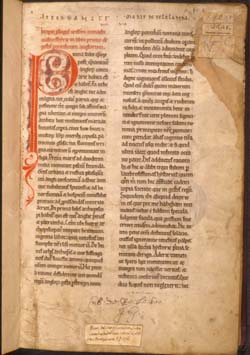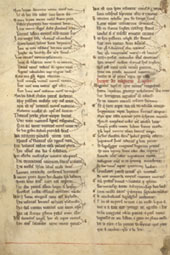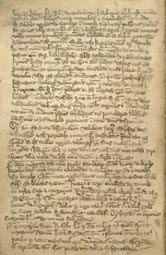 |
 |
 |
 |
 |
 |
 |
|
Byland Abbey: History
Byland Abbey: Buildings
|
After the Dissolution: Byland's library in the sixteenth century [Edward Nettleton and John Nettleton] shall
have all my books, In 1581 Robert Baker, vicar of Driffield, appointed John Nettleton of Hutton Cranswick (East Riding) and Edward Nettleton of Emswell, as trustees of his large collection of over 150 medieval books, until his heirs were of an age to understand them. It has been suggested that Robert may have inherited these books from his namesake and predecessor at Driffield, who can perhaps be equated with Robert Baker, the prior of Byland Abbey at the time of the Dissolution. Indeed, there is little other logical explanation for a rural clergyman with no university education, having a collection of this size and nature.(21) Should this be the case, Robert Baker’s will of 1581 would reveal a cleric’s attempt to preserve a monastic library collection some forty years after the Dissolution of the religious houses.(22) It is also an important source of information for the contents of Byland’s library in the later Middle Ages, for Robert includes a detailed inventory of ninety-nine of these books in his will.(23) Most of the works are theological, and include the writings of Ambrose, Jerome, Augustine, St Bernard and Aquinas. There is little on law and few books representative of the new learning of the Italian Renaissance. Indeed, the contents are similar to the fourteenth-century holdings at Meaux and Rievaulx.(24)
|


